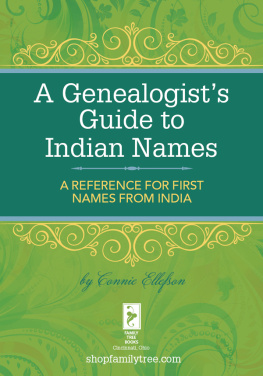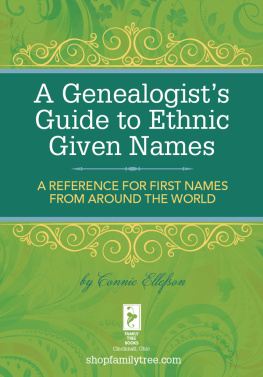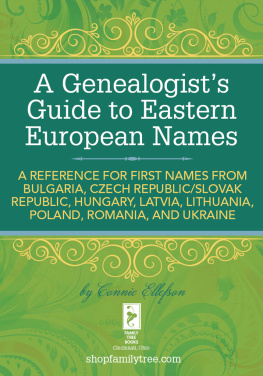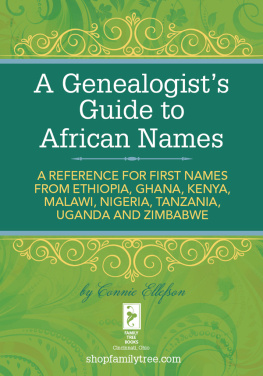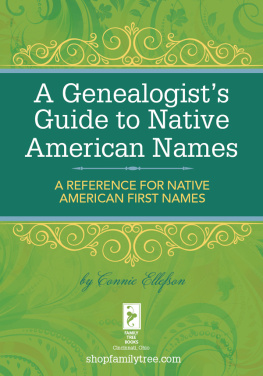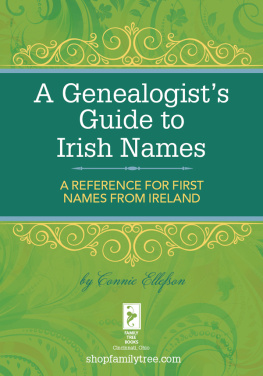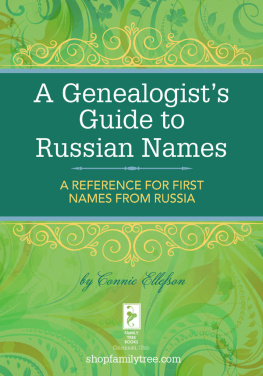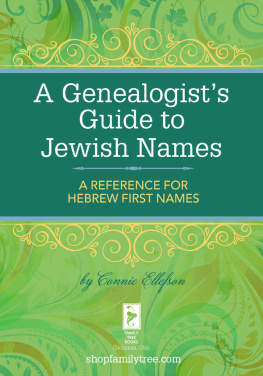A Genealogists Guide to Indian NamesA REFERENCE FOR FIRST NAMES FROM INDIAby Connie Ellefson Cincinnati, Ohio shopfamilytree.com
India
History
Two significant waves of immigration have arrived from East India. The first occurred in the early twentieth century. A drought in the Punjab (northwestern India) between 1898 and 1902 sent nearly 5,000 Sikh men (mostly farmers) out of their country between 1900 and 1910. Most settled in California where they put their agricultural skills to work in vineyards and fig orchards around Fresno and in the rice fields around Sacramento. Thousands also worked on the Western Pacific Railroad in northern California. and extreme differences in Eastern and Western culture. and extreme differences in Eastern and Western culture.
Only seven East Indian women came to the U.S. before World War I. Sikhs comprised over half of Indias immigrants to the U.S. during the early immigration period, and Muslims made up a third. Hindus made up the smallest group of immigrants, perhaps because they had to give up so many of their old ways of life and religion (i.e., the caste system was not a viable way to live in the U.S.). Also, most Hindus are vegetarians, with the eating of meat (sacred cows.) being most objectionable to them.
Thus,only the most independent, adaptable and energetic Indians were able to make the change. Although the Sikhs now make up 30 to 40 percent of the East Indian population in California, they represent only 2 percent of the population in India. The Sikh religion was founded in the fifteenth century by a religious teacher who tried to combine the best aspects of the Hindu and Muslim religions, dedicated to one God. Restrictive exclusion rulings against East Indians in 1917 and 1923, combined with the 1924 Immigration Act, effectively brought East Indian immigration to a halt until 1946, when the Asian quota was relaxed somewhat. About 6,000 East Indians immigrated between 1947 and 1965. After the 1965 immigration laws eliminated national quotas, East Indian immigration increased dramatically.
According to the 1970 census, there were 51,000 foreign-born East Indians in the U.S. By 1980, it was closer to 200,000. The largest concentration of immigrants lives in the New York City area; more than 30,000 live within fifty miles of New York City. Other popular destinations include Chicago and California. When the quota laws were abolished, preference was given to highly trained professionals and their families. Almost 46,000 scientists, teachers, engineers and businesspeople immigrated in the decade following the new law, with an equal number of spouses and children.
English speaking and well educated, these families tended to have little trouble assimilating into the American society, although they attempted to maintain aspects of their own culture as well. The majority of East Indians in India and America are Hindu. Muslims make up 5 percent of the East Indian population and less among their immigrants here.
Naming Traditions
Hindus believe God is manifested in everything. They may name a child after a household object because every time they say the name they are pronouncing the name of God, which is a step toward salvation. Other sources of names are nature, a made-up name, the name of one of the seven sacred Indian rivers, or one of the hundreds of names for Hindu gods, which are said to be manifestations of One God.
The god of destruction, Siva, has 1,008 qualities, any of which can be used as a name. Occasionally, a child may be given an unpleasant name to trick the gods into not taking the child away. Grandparents are often given the honor of choosing a name for a child.
Pronunciation
a = ah as in ball e = eh as in late i = ee as in keep o = oh as in hope u = oo as in moon j = j as in joy q = k as in kite y =y as in yes bh = b as in ball at beginning of word, otherwise pronounce both letters dhr = pronounce d and r as in English, but with distinct sounds
Indian Female Names
Aditi (Hin) goddess
Adya born on Sunday
Ahimsa (Hin) nonviolence
Ajaya (Hin) invincible, intoxicating
Alka (Hin) girl between eight and eighteen years old, girl with long hair
Ambar (Hin) sky, horizon
Ambika (Hin) name for Sakti (goddess of power and destruction)
Amma a mother goddess (others: Mata, Amba, Mahamba, Bimba, Elma)
Amritha (Hin) name of a god
Anala (Hin) fire; Agni
Ananda (Hin) bliss
Anila (Hin) wind god
Anusha (Hin) name of a god; one of twenty-seven stars in Hindu astrology
Arhana (Hin) worship
Arpana (Hin) a present, dedication
Aruna (Hin) name of a god; radiance
Asoka (Hin) nonsorrow flower
Asvina (Hin) born in lunar month Libra
Avasa (Hin) independent
Baka (Hin) crane (symbol of longevity)
Bakula (Hin) a mythological plant
Bela (Hin) Jasmine flower, violin
Bharati (Hin) India
Bhavna (Hin) wish, fancy, desire
Chaitra (Hin) Aries lunar month
Chandi (Hin) name for Sakti (goddess of power and destruction); angry; Chanda
Chandra (Hin) moon, moon god
Changla (Hin) active girl
Channa chickpea
Chitra (Hin) name of a god; star in astrology
Corona (Hin) politeness, kindness
Daru (Hin) pine, cedar
Deepa (Hin) name of a god; lamp
Deva (San) divine
Devaki black
Devi (DAY-vee) (Hin) name for Sakti (goddess of power and destruction)
Divya (Hin) divine, heavenly; Divia
Drisana (San) daughter of the sun; Drisa
Durga (Hin) wife of Siva (god of destruction)
Durva (Hin) durva grass
Ellama (Hin) mother goddess
Ganesa (guh-NAY-shuh) (Hin) god of good luck and wisdom
Ganga (Hin) holy river; Ganges
Garuda (Hin) sunbird that god Vishnu rides
Gauri (GO-ree) (Hin) yellow, fair
Geetha (Hin) song (especially Hindu lyric Bhagarat Geetha)
Girisa (gee-REE-shah) (Hin) name for Shiva (god); mountain lord
Guri (Hin) goddess of abundance
Hanita (Hin) divine grace
Hara (HAH-rah) (Hin) name for Siva (god of destruction); seizer
Hema (Hin) name of a god; daughter of the mountains
Indi (Hin) Indian
Indra (Hin) god of power
Jambu (Hin) rose apple tree
Jarita (Hin) legendary bird mother
Jaya (Hin) name of a god; victory
Jayne (JIN) (Hin) victorious
Jivanta to give life
Jyotis suns light
Kala (Hin) name for Siva (god of destruction); black, time
Kali (San) mother goddess Sakti; energy, black goddess
Kalinda (Hin) sun, from mythical Kalinda mountains
Kamala (Hin) lotus
Kantha (Hin) wife
Kanya 
